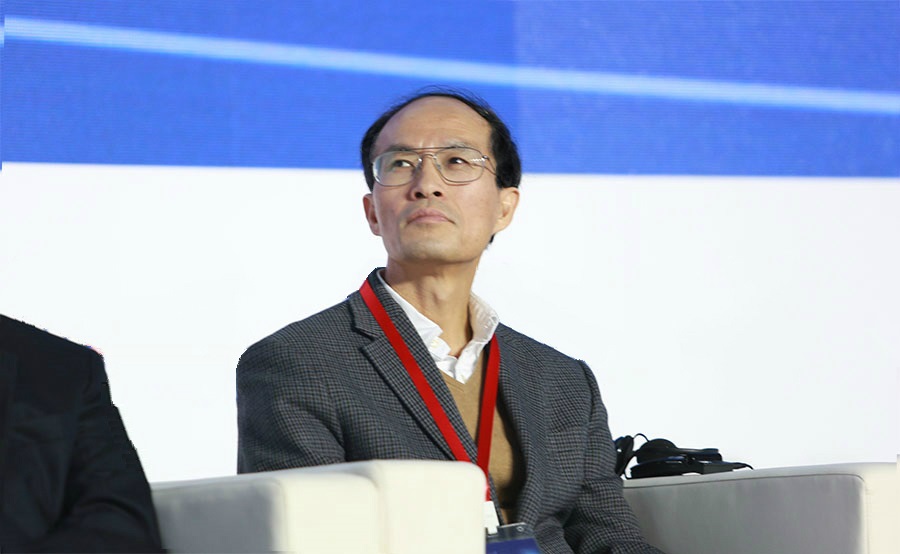Inside Information - From Martian Meteorites to Mummies
by Anders Ynnerman, Department of Science and Technology, Linköping University
In the last decades imaging modalities have advanced beyond recognition and
data of rapidly increasing size and quality can be captured with high speed.
This talk will show how data visualization can be used to provide public visitor venues,
such as museums, science centers and zoos with unique interactive learning experiences.
By combining data visualization techniques with technologies such as interactive multi-touch tables
and intuitive user interfaces, visitors can conduct guided browsing of large volumetric image data.
The visitors then themselves become the explorers of the normally invisible interior of unique artifacts and subjects.
The talk will take its starting point in the current state-of-the-art in CT and MRI scanning technology.
It will then discuss the latest high-quality interactive volume rendering and multi-resolution techniques for large scale data and
how they are tailored for use in public spaces.
Examples will then be shown of how the inside workings of the human body, exotic animals, natural history subjects,
such as the martian meteorite, or even mummies can be explored interactively.
The recent mummy installation at the British Museum will be shown and discussed from both a curator and visitor perspective and
results from a 3 month trial period in the galleries will be presented.
Biography

Professor Anders Ynnerman received a Ph.D. in physics from Gothenburg University.
During the early 90s he was at Oxford University, UK, and Vanderbilt University, USA.
From 1997 to 2002 he directed the Swedish National Supercomputer Centre and
from 2002 to 2006 he directed the Swedish National Infrastructure for Computing (SNIC).
Since 1999 he has held a chair in scientific visualization at Linköping University
and is the director of the Norrköping Visualization Center - C.
Ynnerman is a member of the Swedish Royal Academy of Engineering Sciences and
a board member of the Foundation for Strategic Research.
In 2007 Ynnerman was awarded the Akzo Nobel Science award and
the Golden Mouse award for Swedish IT-person of the year.
In 2009 he received the Athena Award for best medical clinical research in Sweden and
in 2010 he received the Swedish Knowledge Award for dissemination of scientific knowledge to the public.
In 2011 he received the IVA gold medal from the King of Sweden.
He is currently chair of the Eurographics Association and an associate editor of IEEE TVCG.
Visualization and Knowledge Automation: Enterprise 5.0 and Parallel Evolution
by Fei-Yue Wang,
The State Key Laboratory of Management and Control for Complex Systems, Institute of Automation, Chinese Academy of Sciences
Rapid development of big data, cloud computing, and internet of things has initiated a new revolution in sciences,
technologies, and industries, and are dramatically changing the pattern of our economic production and social living.
After waves of innovations in mechanical, electrical, information, and networking technologies,
we are entering the new and fifth development stage of parallel technology with virtual-real duality,
where enterprise 5.0, supported by software-defined plants or factories and cyber-physical-social systems,
will be the infrastructure for coming intelligent manufacturing and smart industries.
We believe visualization and knowledge automation will play a key role
in this process of parallel virtual-real evolution towards smart living and working in a smart society.
Biography

Dr. Wang received his Ph.D. in Computer and Systems Engineering from Rensselaer Polytechnic Institute,
Troy, New York in 1990. Dr. Wang has been a researcher, educator, and practitioner of intelligent and complex systems
for more than 30 years. He joined the University of Arizona in 1990 and became a Professor and Director of
the Robotics and Automation Lab (RAL) and Program in Advanced Research for Complex Systems (PARCS).
In 1999, he found the Intelligent Control and Systems Engineering Center at the Institute of Automation,
Chinese Academy of Sciences (CAS), Beijing, China, under the support of the Outstanding Oversea Chinese Talents
Program from the State Planning Council and “100 Talent Program” from CAS, and in 2002, was appointed as the Director
of the Key Lab of Complex Systems and Intelligence Science, CAS. From 2006 to 2010, he was Vice President for research,
education, and academic exchanges at the Institute of Automation, CAS. Since 2005, he is the Dean of the School of
Software Engineering, Xi’an Jiaotong University. In 2011, he became the State Specially Appointed Expert and the Director
of the State Key Laboratory of Management and Control for Complex Systems.
Dr. Wang has published extensively in modeling, analysis, control and management of complex systems.
His current research is focused in methods and applications for parallel systems, social computing,
and knowledge automation. He was the Founding Editor-in-Chief of the International Journal of Intelligent
Control and Systems from 1995 to 2000, the Series on Intelligent Control and Intelligent Automation from 1996 to 2004,
and IEEE Intelligent Transportation Systems from 2006 to 2008, and the EiC of IEEE Intelligent Systems from 2009 to 2012.
Currently, he is the EiC of IEEE Transactions on ITS. Since 1997, he has served as General or Program Chair of more than 20 IEEE,
INFORMS, ACM, ASME conferences. He was the President of IEEE ITS Society from 2005 to 2007,
Chinese Association for Science and Technology (CAST, USA) in 2005, and the American Zhu Kezhen Education Foundation from 2007-2008.
Since 2008, he is the Vice President and Secretary General of Chinese Association of Automation.
Dr. Wang is member of Sigma Xi and an elected Fellow of IEEE, INCOSE, IFAC, ASME, and AAAS.
In 2007, he received the 2nd Class National Prize in Natural Sciences of China and awarded the Outstanding Scientist by
ACM for his work in intelligent control and social computing. He received IEEE ITS Outstanding Application and Research
Awards in 2009 and 2011, respectively. In 2014, Dr. Wang received the IEEE SMC Society Norbert Wiener Award.

